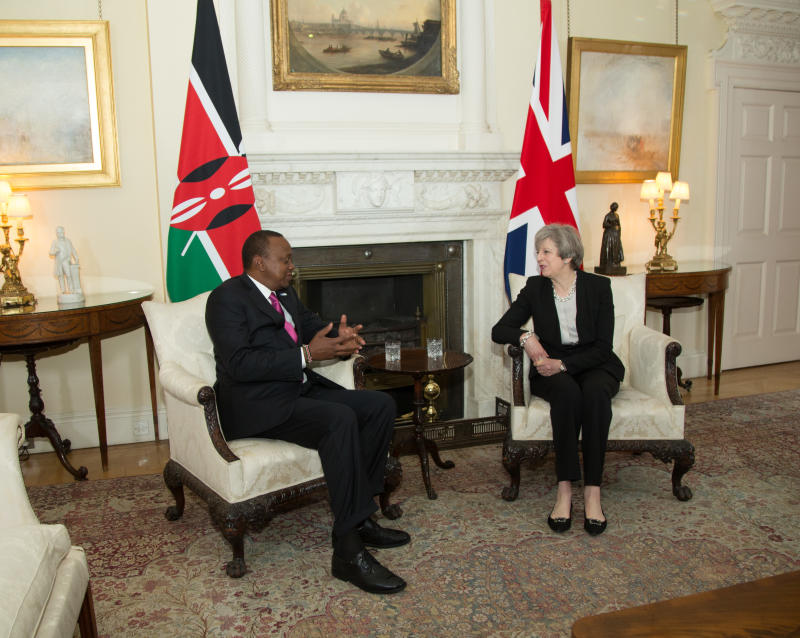×
The Standard e-Paper
Kenya’s Boldest Voice

President Uhuru Kenyatta will on Thursday meet the United Kingdom Prime Minister Theresa May in Nairobi during her first visit to Africa.
The two are no strangers, having interacted in April during the Commonwealth Heads of Government Meeting in the United Kingdom.